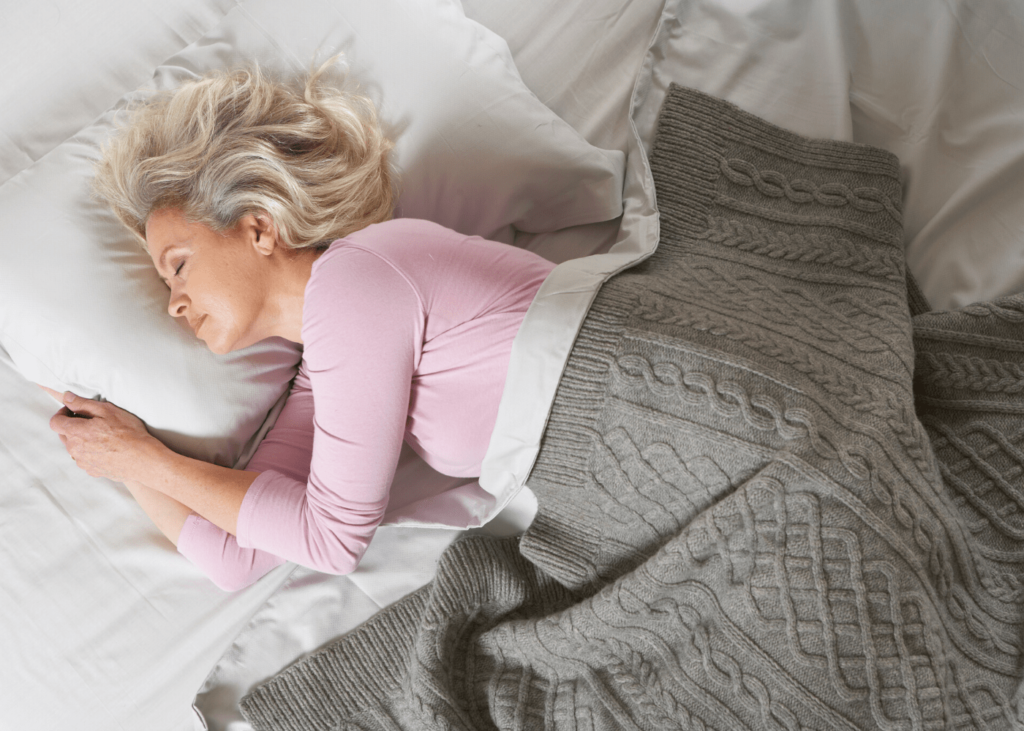Having fought the urge to hit snooze for the seventh (or hundredth!) time on the morning alarm, I wonder if, like me, you’ve made a promise to yourself to get a good nights sleep tonight no matter what.
Research has shown that a whopping two thirds of adults in developed countries fail to get the recommended six to eight hours sleep a night. This comes despite the huge body of evidence that consistently suggests sleep is as vital for your health and mental well-being as exercise and a healthy diet.
It goes almost without saying that poor sleep can negatively affect your mood, leave you feeling irritable and fatigued but in fact, regular poor sleep has also been strongly linked with a risk of developing serious medical conditions such as Alzheimer’s, heart disease, diabetes and obesity.
Thankfully, there are many factors we have control over that can influence the quality and length of our sleep. Here we discuss the top five tips to help you on your way to a better nights sleep and a healthier you (and maybe even the added bonus of that morning alarm not being the enemy after-all!).
Tips for Improving your Sleep
1. Wind Down
Sure, smart phones, tablets and TV’s have their benefits in daylight hours, but the light gleaning from those screens is a sure fire way of making it difficult for you to get to sleep. This is no myth. In fact, biology says so. The blue light emitted from your screens restricts the production of melatonin making it harder for you to fall asleep. Ideally, allow yourself an hour before you intend to sleep to wind down without technology (even just half an hour has been shown to have its benefits). Instead, replace those screens with a warm bath, some yoga, meditation or a good book.
2. Organise your thoughts
If the demands of your work or day-to-day lifestyle means you find yourself longing for your mind to ‘switch off’ when you are trying to sleep, then one strategy that might help is to write yourself a to-do list before bed. Organising your thoughts can help clear your mind of distractions and prevent it running round in circles as you try and drift off to sleep. A similar idea might be to list the positive elements of your day or week ahead to help down size stressful events and encourage a state of happiness before bed.
3. You are what you eat (and drink!)
Think carefully about pre-bed time snacks and drinks. In fact, research has shown that caffeine can negatively impact your ability to get to sleep up to six hours before bed. And remember, caffeine is not just in your coffee but also chocolate and many soda drinks. Try replacing those treats with some calming chamomile tea to help sooth and relax the body. There are many other foods and drinks that have been linked with improving sleep such as kiwi, bananas, milk and nuts! Of course, every body is different so give yourself time to try a few and see what works best for you.
4. Create a sleep-friendly environment
Our biology is set up to work with the cycle of our rotating planet and the regular patterns of light and dark. Unfortunately, routine and work commitments often get in the way of this natural rhythm so create an environment that helps it. Ideally your room needs to be dark (invest in some black-out curtains) and the NHS recommends a temperature of between 18-24C. If noise is an issue, ear plugs may be a simple answer.
5. Stick to a schedule
The reality of the western-world is that we work more days than we rest but it is important to try to resist the urge to have that super long lie in on a weekend. Instead, a regular sleep pattern helps to regulate your body clock, allowing you to fall asleep and importantly stay asleep for a quality nights sleep.
There are many other suggested ways to help you with your sleep and of course our bodies can be very different so find what works for you. If you feel still feel at a loss at how to improve your sleep don’t hesitate to contact your GP for further advice but hopefully experimenting with the above will have a positive impact. And remember never to underestimate the power of sleep for your health and well-being!
Related Articles:
Improve Recovery and Focus with Plunge Pools
